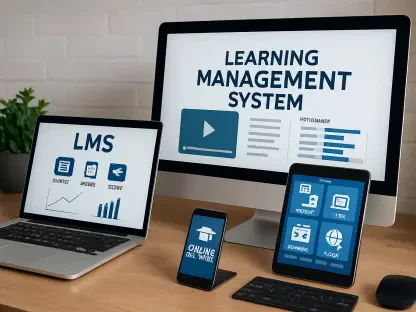In a state where childhood well-being has long lagged behind national standards, New Mexico faces a pivotal moment to redirect its resources toward transformative solutions that could reshape future generations. Recent discussions have spotlighted the stark contrast between funding initiatives like free college education and investing in early childhood programs, with compelling arguments suggesting that the latter offers far greater long-term benefits. With historic budget surpluses at hand, state leaders are under scrutiny for their spending priorities, especially as data continues to paint a grim picture of the state’s standings in education, health, and economic stability for children. This debate raises critical questions about how best to allocate funds to address systemic challenges at their root, rather than applying temporary fixes later in life. The focus on early years, supported by robust research and innovative state policies, emerges as a potential game-changer for tackling disparities before they become entrenched.
Rethinking State Investments for Maximum Impact
Early Childhood as a Strategic Priority
New Mexico’s persistent struggle with childhood well-being is evident in national rankings that place the state at the bottom across multiple indicators, including education and family support. The Kids Count Data Book reveals a troubling reality: last in education and community metrics, 49th in economic conditions, and 46th in health outcomes for children. Despite unprecedented financial resources from recent budget surpluses, the decision by state leadership to emphasize free college education has sparked debate about whether these funds could be better directed. Critics argue that investing in the first five years of a child’s life yields more significant societal returns than funding higher education. A recent state initiative to provide free childcare to all residents, regardless of income level, marks a bold step toward prioritizing early development, reflecting a growing understanding that early intervention can address academic and social gaps before they widen.
Balancing Educational Funding Choices
The argument for reallocating resources to early childhood programs is bolstered by the transformative potential these initiatives hold. Unlike college funding, which benefits individuals at a later stage, early education lays a foundation that influences a child’s entire trajectory. Research, such as a notable study on Boston’s preschool program by MIT, highlights that children enrolled in quality early education are more likely to graduate high school, pursue higher education, and avoid behavioral issues like suspensions or juvenile arrests. In New Mexico, the shift to universal childcare access reframes such services as essential public infrastructure rather than a welfare handout. This approach not only supports families across income brackets but also tackles disparities head-on by ensuring that every child starts with equal opportunities. The state’s focus on these programs signals a commitment to long-term equity over short-term political wins, challenging traditional views on educational spending.
Building a Stronger Foundation Through Policy and Research
Evidence Supporting Early Education Benefits
A wealth of empirical evidence underscores the value of early childhood education as a cornerstone for societal progress in New Mexico. Studies consistently show that quality preschool programs lead to improved academic performance, higher graduation rates, and reduced involvement in the justice system. These outcomes are particularly crucial in a state grappling with systemic challenges that hinder child development from the outset. By investing in the formative years, policymakers can address issues like poverty and educational inequality before they compound. The universal childcare initiative, recently rolled out across the state, exemplifies a proactive stance, ensuring that access to early learning is not dictated by a family’s financial status. This policy not only empowers parents to work without the burden of childcare costs but also sets a precedent for viewing early education as a public good, akin to K-12 schooling, with far-reaching benefits for community stability.
Expanding Access and Infrastructure for Childcare
New Mexico’s comprehensive strategy to enhance childcare access demonstrates a nuanced understanding of the barriers families face. Since establishing the Early Childhood Education and Care Department, the state has targeted support for families at or below 400% of the federal poverty level, recently removing income restrictions altogether to broaden impact. A $12.7 million fund dedicated to constructing and expanding childcare centers, alongside a proposed $20 million for the upcoming fiscal year, addresses critical provider shortages, especially in rural and underserved areas. Partnerships with school districts and improved reimbursement rates for providers further bolster this effort, incentivizing more professionals to enter the field. While some critics voice concerns about government overreach in traditionally parental domains, the reality of dual-income households—where women make up over half the workforce—necessitates such support. These policies aim to complement, not replace, family roles, ensuring that children receive consistent care during pivotal developmental stages.
Reflecting on Past Efforts and Future Directions
Looking back, New Mexico’s concerted push toward early childhood education marked a significant shift in how state resources were allocated to address deep-rooted challenges. The decision to prioritize universal childcare and infrastructure expansion over other initiatives like free college reflected a data-driven recognition of where investments could yield the most substantial returns. As those efforts unfolded, they highlighted the importance of early intervention in breaking cycles of disadvantage. Moving forward, sustained funding and public support will be essential to maintain momentum, alongside continuous evaluation to refine approaches based on outcomes. Exploring innovative partnerships and leveraging technology to reach remote communities could further enhance access. Ultimately, the focus must remain on creating equitable opportunities for every child, ensuring that the foundation laid in the early years translates into lasting societal progress.









